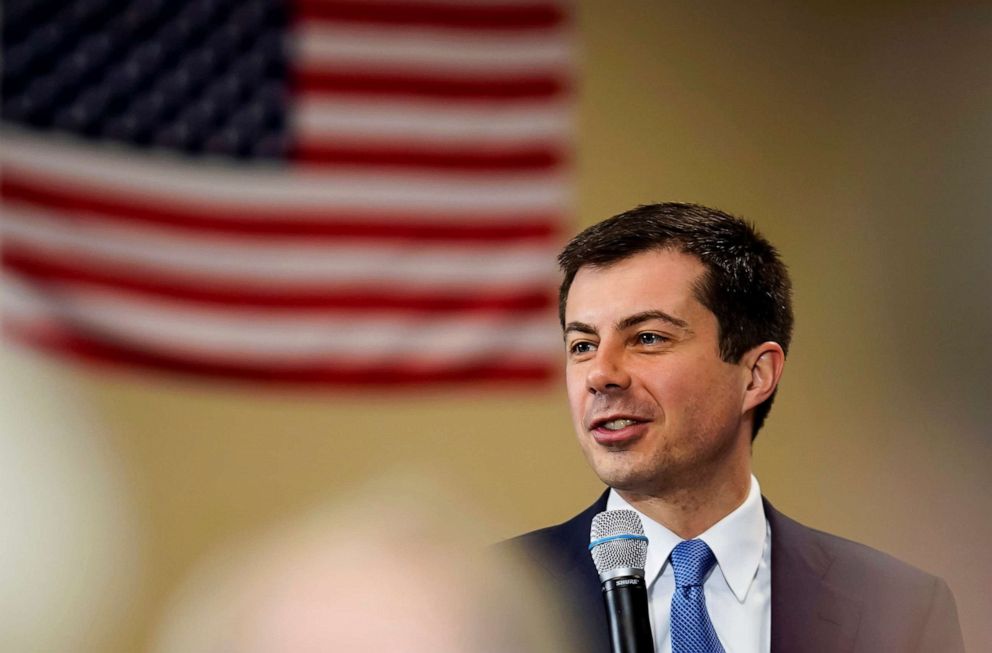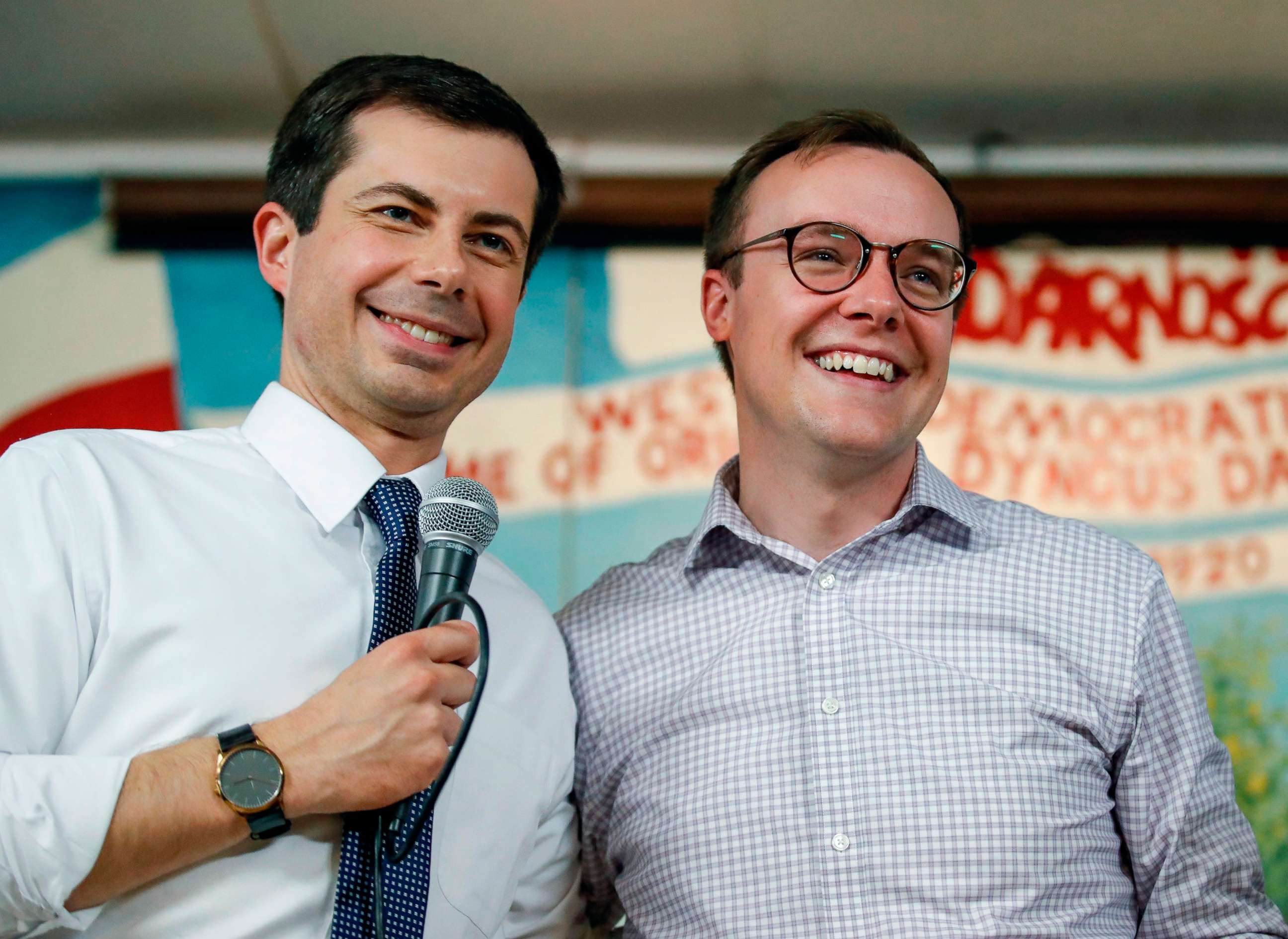With nomination, Pete Buttigieg reflects on historic moment for LGBTQ Americans
If confirmed, Buttigieg could represent one of several firsts in the Cabinet.
With a formal nomination from President-elect Joe Biden to serve as transportation secretary, Pete Buttigieg could now become the first openly gay person approved by the Senate to serve in a Cabinet position.
In a speech from Wilmington, Delaware, on Wednesday, the former mayor of South Bend, Indiana, reflected on what the moment means for all LGBTQ Americans.
“I can remember watching the news -- 17-years-old in Indiana, seeing a story about an appointee of President Clinton named to be an ambassador attacked and denied a vote in the Senate because he was gay -- ultimately able to serve only by a recess appointment,” he said. “And I learned something about some of the limits that exist in this country when it comes to who is allowed to belong. But just as important, I saw how those limits could be challenged."
Buttigieg was referring to the nomination of James Hormel to be ambassador to Luxembourg under President Bill Clinton in 1998. Senate Republicans held up the nomination in protest for two years until Clinton made the appointment himself, without confirmation, while the Senate was in recess.
“Two decades later, I can't help but think of a 17-year-old somewhere who might be watching us right now, somebody who wonders whether and where they belong in the world, or even in their own family. And I'm thinking about the message that today's announcement is sending to them,” Buttigieg added.
If confirmed, Buttigieg would represent one of several firsts among Biden's Cabinet nominees. The Cabinet could also include the first female treasury secretary, the first Black defense secretary and the first Latino health secretary.
Other administrations have featured high-ranking LGBTQ officials. Eric Fanning, the first openly gay person to hold an armed service's top civilian position, served as secretary of the Army during the Obama Administration. In the Trump administration, Richard Grenell served as acting director of national intelligence, becoming the first openly gay person to serve in a Cabinet-level position in an acting capacity.
Buttigieg also represents a second “first" as a millennial. At 38, Buttigieg is the youngest of Biden’s nominees thus far and the first person of his generation to be nominated for a Cabinet-level position. The average age of Biden nominees to date is 59.

“My view of this opportunity is also shaped by being the youngest member so far named to this Cabinet and the first millennial invited to a seat at that table. Newer generations have a lot at stake in infrastructure policy that, by its nature, must contemplate both the immediate and the long term. And the question of how America will look by the middle of this century, the competitiveness of our economy, the security of our climate,” Buttigieg said.
Buttigieg, seen as a rising star in the Democratic party, released a $1 trillion infrastructure plan during his campaign for president in January that included improvements to the country’s transportation infrastructure. Its detailed plans to give more power to local communities called for upgrades to roads and public transportation and also highlighted road safety with a national Vision Zero goal.
But Biden has his own ambitious infrastructure plan, which is a major priority in his “Build Back Better” campaign, focused on climate change and job creation in the wake of the pandemic.
In his remarks on Wednesday, Buttigieg joked about his love for transportation while offering up some credentials for the position, saying he proposed to his husband at an airport terminal (“Don’t let anybody tell you that O’Hare isn’t romantic”).

“More than once as a college student I would convince a friend to travel nearly 1,000 miles back to Indiana with me on Amtrak. Though I know that in this administration, I will, at best, aspire to be the second biggest train enthusiast around,” Buttigieg said, referring to Biden’s well-known affinity for Amtrak.
But Buttigieg also took a serious tone, recognizing that infrastructure has the power to bridge racial and economic disparities in America.
“At its best, transportation makes the American dream possible. Getting people and goods to where they need to be. Directly and indirectly creating good paying jobs. At its worst, misguided policies and missed opportunities can reinforce racial, economic and environmental injustice -- dividing or isolating neighborhoods, undermining government's basic role to empower everyone to thrive” Buttigieg said. “And now comes a historic opportunity. This administration can deliver policies and resources that will create jobs, rise to the climate challenge, and equitably serve all Americans.”
ABC News' Molly Nagle and Justin Gomez contributed to this report.




